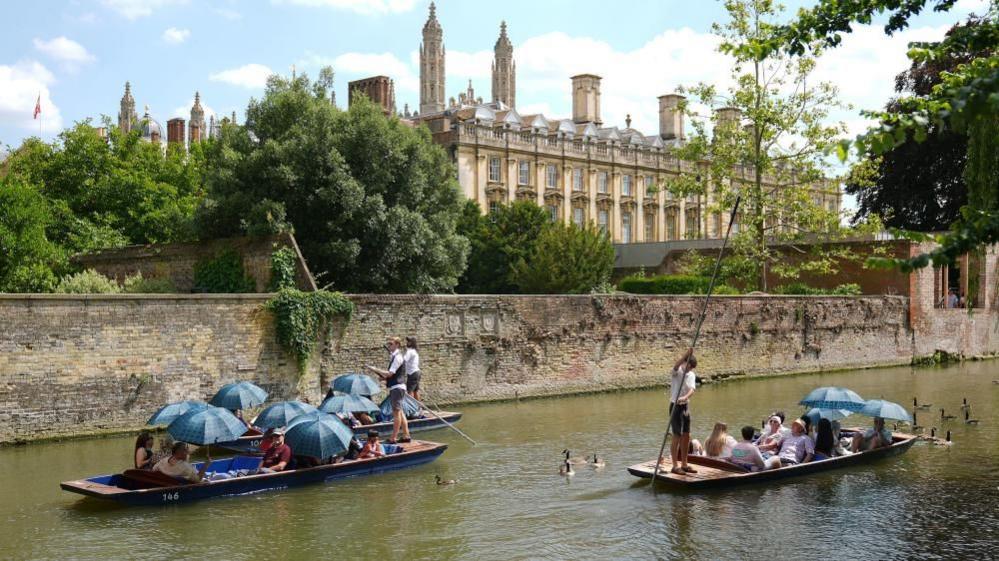Oxbridge 'Silicon Valley' gets £500m boost
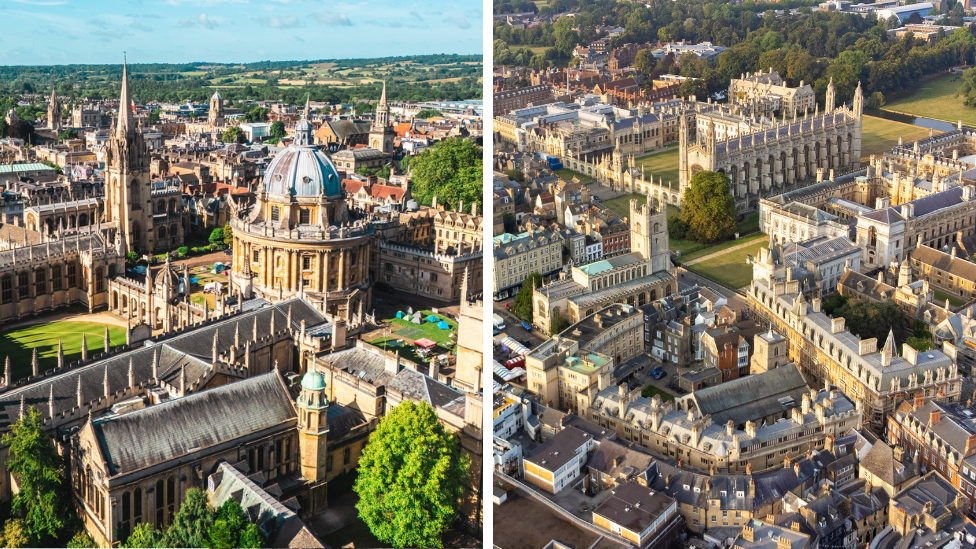
The government is to invest £500m in the Oxford-Cambridge Growth Corridor, which was announced earlier this year
- Published
The government is to invest £500m to "kickstart" regional growth in "Europe's Silicon Valley".
Money for the Oxford-Cambridge Corridor will see £400m spent on the Cambridge end to boost development with affordable homes, infrastructure and business expansion, the government said.
The Cowley branch railway line will also be reopened with new stations at Littlemore and Cowley, "to help support the creation of up to 10,000 new jobs and homes in Oxford".
The government said the investments would build on its commitment to deliver East West Rail, "which will strengthen links between Oxford and Cambridge, Milton Keynes, Bedford and beyond".
Chancellor Rachel Reeves said the corridor could add £78bn to the UK's economy by 2035.
Her plans have sparked concern among some Labour MPs in the north of England, who have warned against too narrow a focus on wealthier areas in the south.
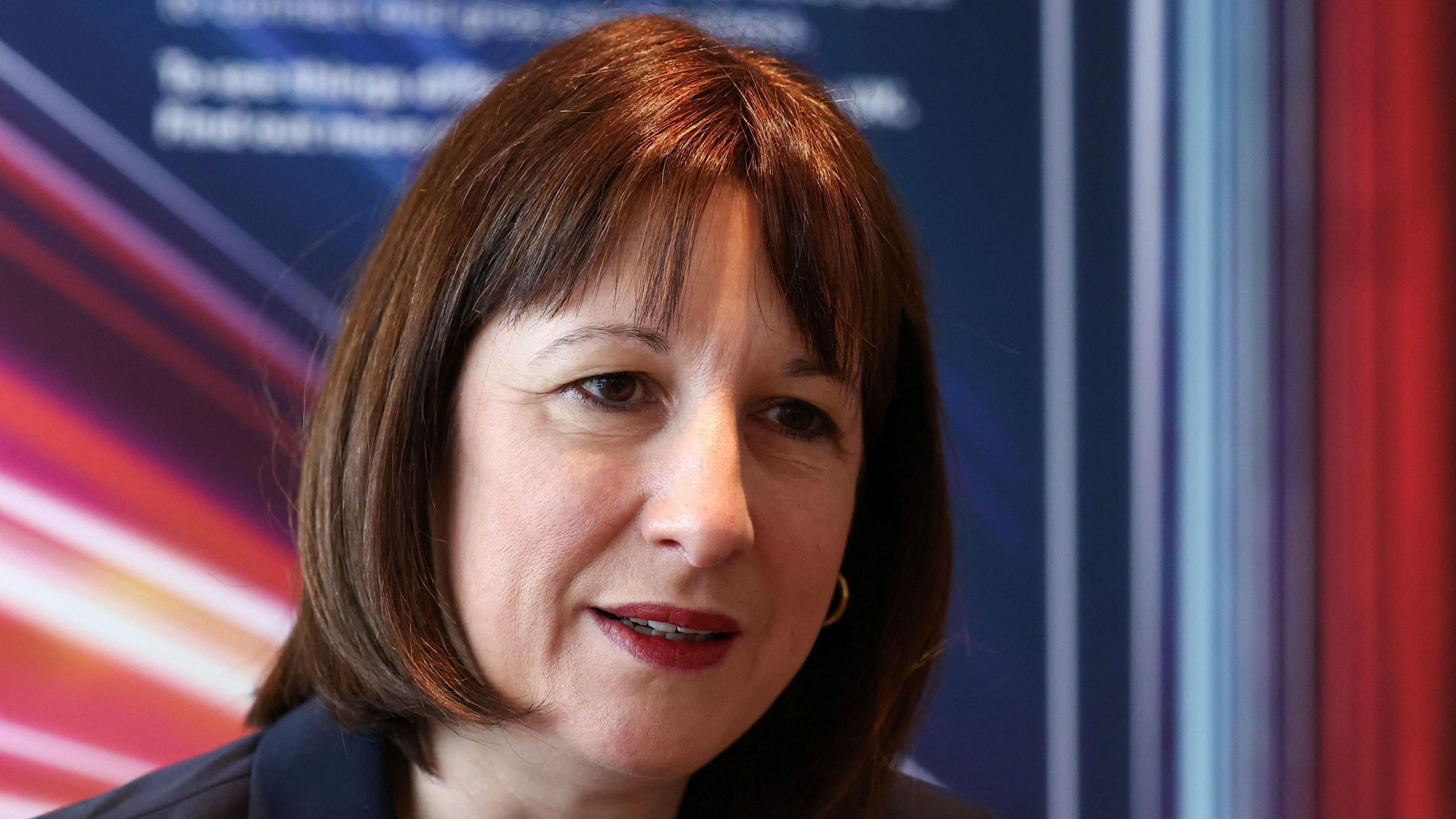
Oxford and Cambridge offer huge economic potential for the nation's growth prospects, said Chancellor Rachel Reeves
In January, Reeves announced the Environment Agency had lifted objections to plans for 4,500 homes after the government found "creative solutions to unlock growth and address environmental pressures" following concerns about water scarcity in the region.
According to the Ministry for Housing, Communities and Local Government, some £30m of the cash would go towards water scarcity measures.
Reeves said: "Oxford and Cambridge are home to the two of the best universities in the world, two of the most intensive innovation clusters in the world, and the area is a hub for globally renowned science and technology.
"We have massive ambitions for the Oxford-Cambridge corridor, that's why we're reopening the Cowley branch railway 60 years after it closed, why we're building more affordable housing and investing in business, and how we've been able to unlock £10bn in private investment."
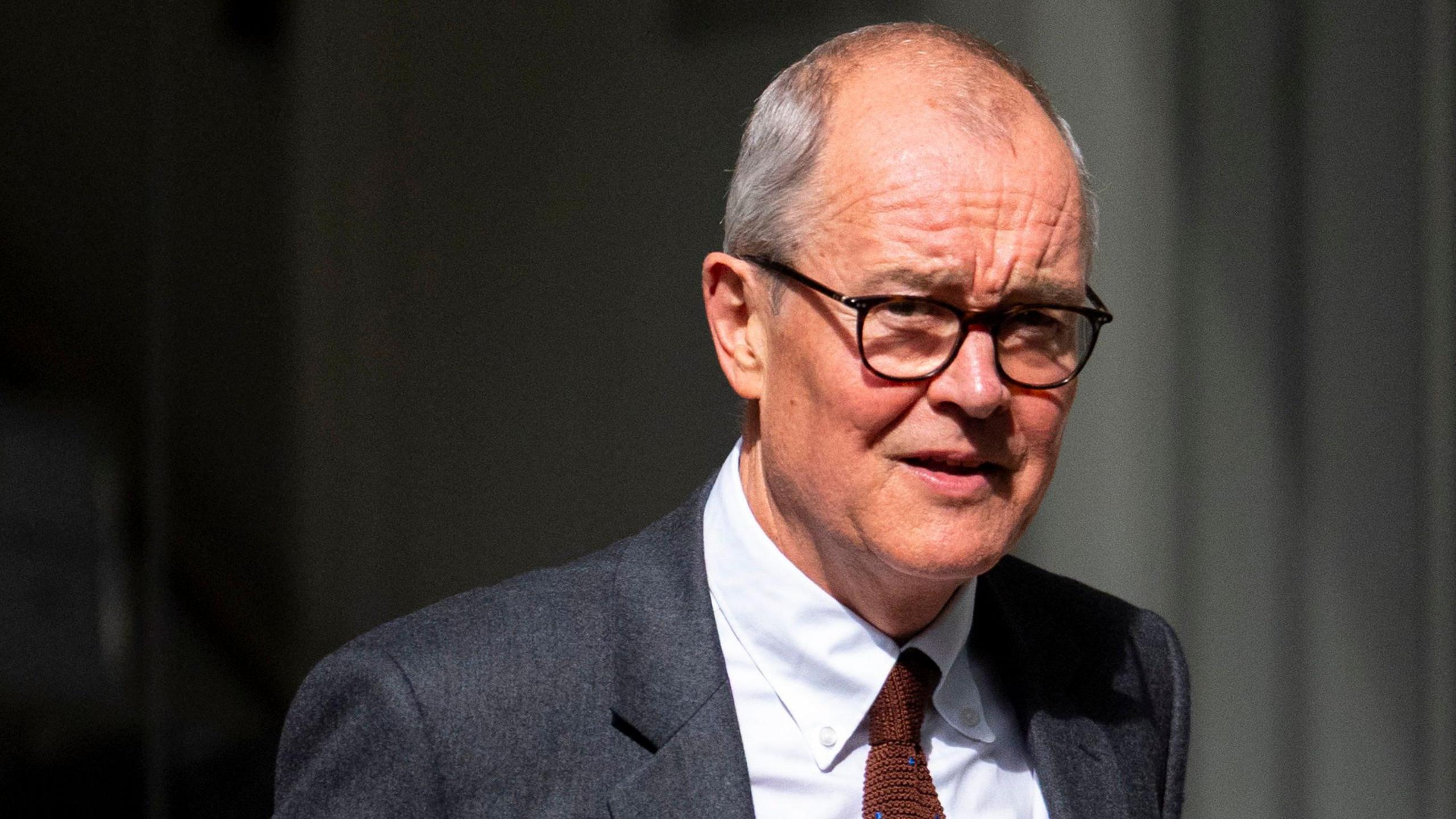
Lord Vallance said the investment would benefit the whole country
Sir Patrick Vallance, Oxford-Cambridge innovation champion and science minister, said: "These investments are a milestone, not just for the Oxford to Cambridge corridor, but for the entire country.
"We are going to deliver the housing, amenities and infrastructure that businesses need to grow and that people need to flourish."
Kathryn Chapman, executive director of Innovate Cambridge, welcomed the package.
She said: "Cambridge is a magnet for world-class talent, business and investment, driving innovations that will shape the future - from life-saving medicines to quantum technologies.
"It will remove barriers, unlock growth, and ensure Cambridge and the UK remain at the forefront of global innovation."
The new funding follows Ellison Institute of Technology (EIT) announcing a £10bn expansion of its Oxford base over the next decade, potentially creating 7,000 jobs.
Lisa Flashner, EIT's chief operating officer, said the government's investment would help it attract "world-class talent" by linking key innovation hubs with more direct train services.
"We're delighted to hear the Cowley branch line will be reopened to passenger traffic," she said.
"It's a great example of what can happen if government and the private sector join forces and both contribute to a common goal."
The government said the investment would also include £15m for the University of Cambridge Innovation Hub, to create lab space for science start-ups to grow and compete on the global stage.
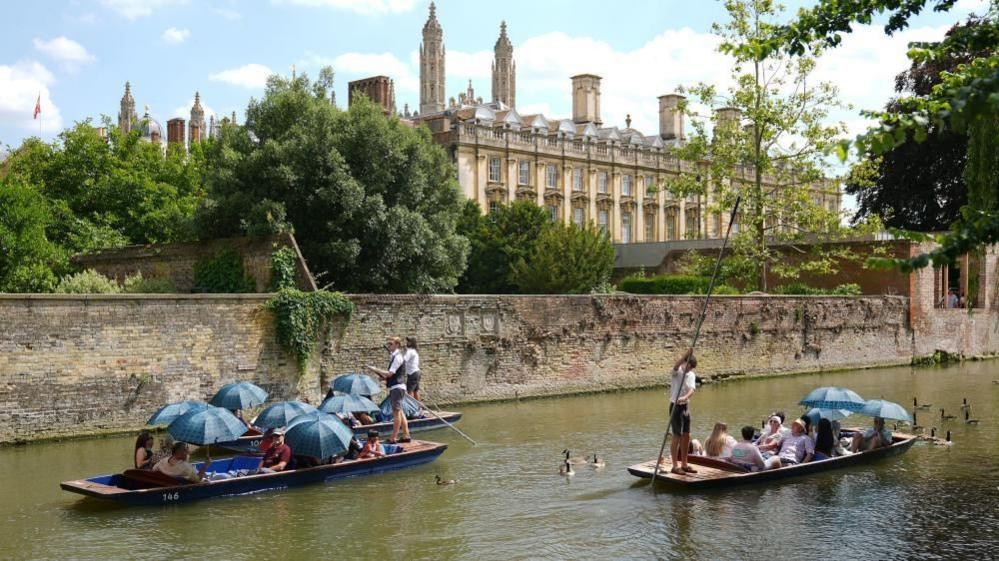
Cambridge, one of the least affordable cities in the UK and a water-stressed region, will benefit from £400m, said the government
Pippa Heylings, Liberal Democrat MP for South Cambridgeshire, welcomed the government's "commitment" to more homes and infrastructure, particularly public transport which was "critically needed".
However, she wanted more details to ensure the plans for infrastructure included plans for water, sewage and health.
She said more GPs and a new hospital for a growing population were required, adding the current site "was built for a quarter of the population that it is serving".
She also urged the centrally led body being set up to oversee the developments, known as the Cambridge Growth Company, to listen to local voices on future plans.
The Mayor of Cambridgeshire and Peterborough, Conservative Paul Bristow, agreed with the MP's concerns about water, but hoped smaller agricultural reservoirs in East Cambridgeshire would support development while the new Fens reservoir is being built.
Bristow welcomed the government's cash announcement and said it had been "a long-time coming".
"This is great news. We can either resist the growth of Cambridge or we can lean into it and make sure we get the infrastructure, the business, the jobs," he said.
The innovation hub at the University of Cambridge was particularly welcome, he added, as well as improvements to the A10.
"Growth has got to work for people that already live in Cambridge as well. It can't just be about bringing new people in. So affordable housing has got to be a key element to all this."
Get in touch
Do you have a story BBC Oxfordshire should cover?
You can follow BBC Oxfordshire on Facebook, external, X (Twitter), external, or Instagram, external.
Related topics
- Published23 October

- Published14 July

- Published29 January
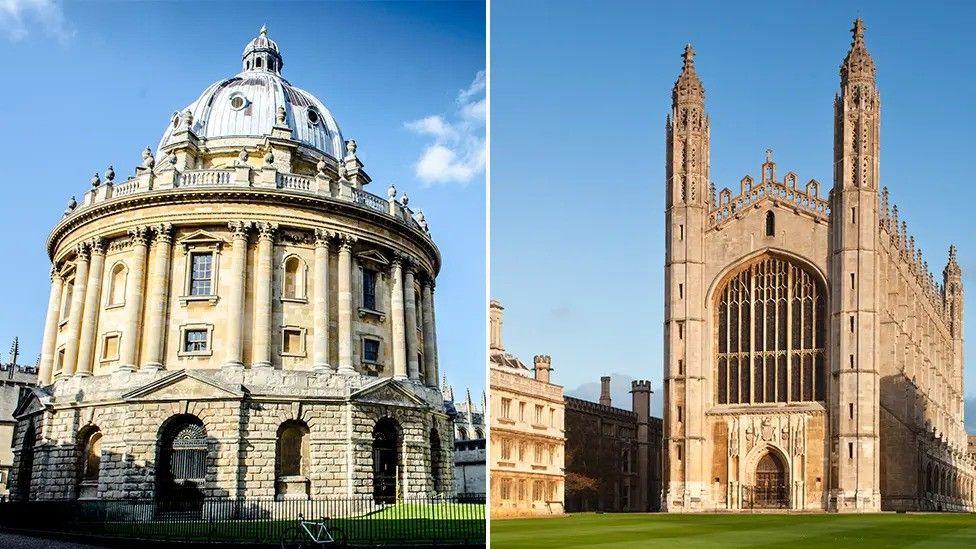
- Published31 January
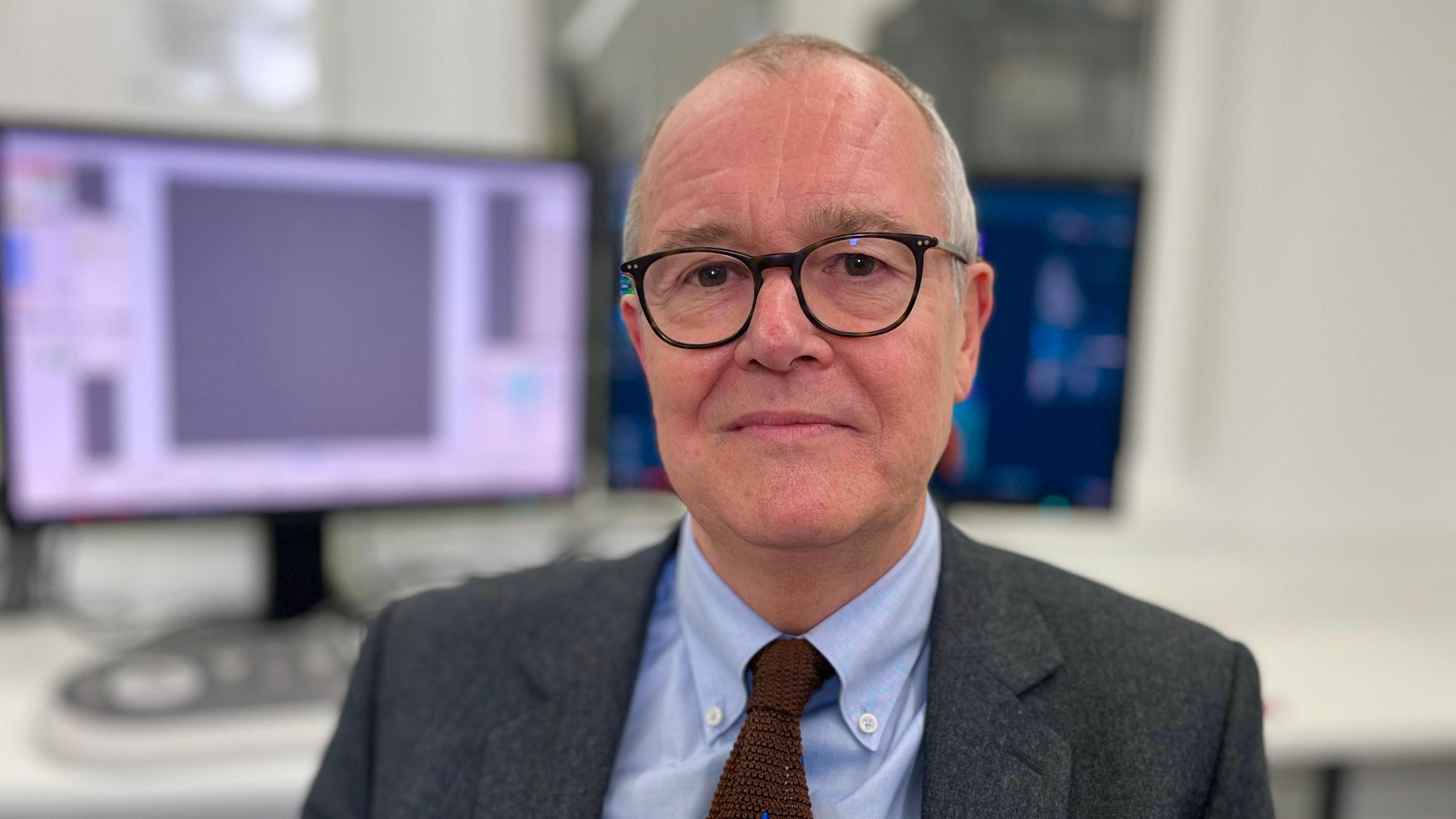
- Published25 July 2024
